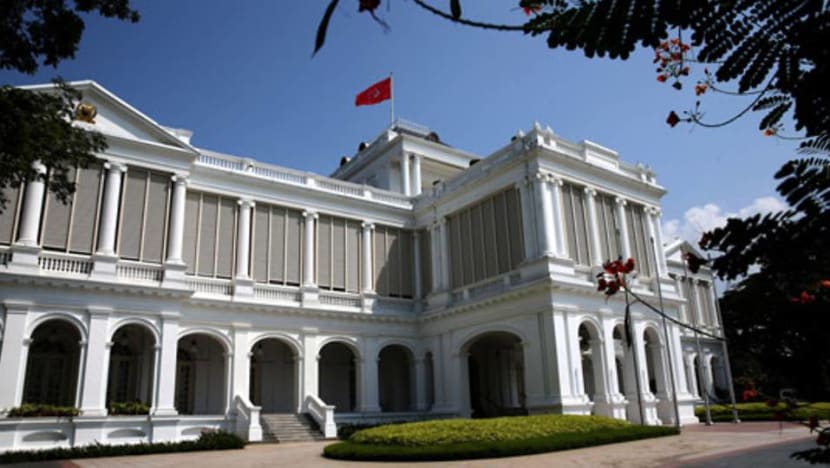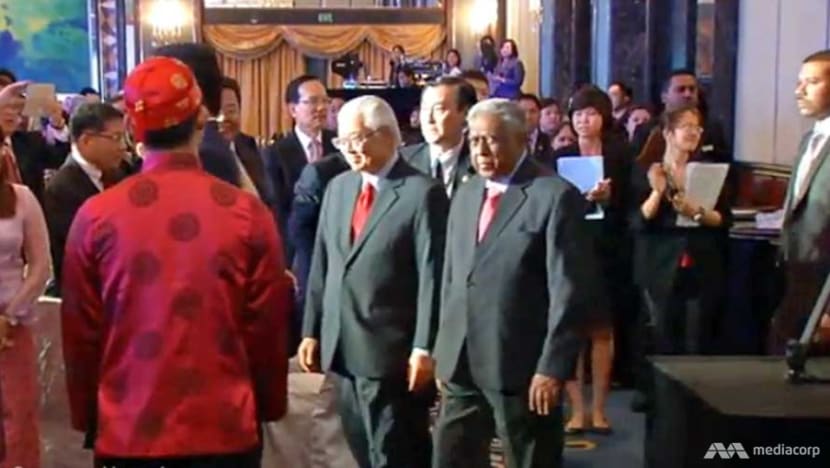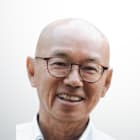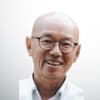Commentary: For Singapore’s sake, we need a contest in the Presidential Election
A Presidential Election contest between a candidate who has links to the ruling party and one who does not will be win-win for all in Singapore, says former veteran newspaper editor Han Fook Kwang.

The main building of the Istana. (Photo: The Istana's website)
SINGAPORE: The search for Singapore's next president has begun.
The media have started speculating who might throw his or her hat into the ring. As expected, the names being mentioned are the usual suspects of eligible ex-ministers including Lim Boon Heng, Khaw Boon Wan and George Yeo, and the usual list of popular personalities such as Ambassador-at-Large Tommy Koh (even though he says he does not qualify).
There are not many because the eligibility criteria are so stringent, the vast majority of Singaporeans do not qualify at all.
You can be one of the most distinguished diplomats Singapore has ever produced like Prof Koh yet not make the first cut.
This is because there are only two groups of eligible people - ex-senior civil servants or political office holders and corporate leaders who have run businesses with shareholders’ equity of at least S$500 million (US$370 million).
Ambassadors are not deemed good enough, hence Prof Koh’s ineligibility.
All four previously elected presidents belonged to the first group, and all bar one were senior members of the ruling People’s Action Party (PAP), as ex-ministers, and in the case of the current President Halimah Yacob, as a former Speaker of Parliament.
The exception was Mr S R Nathan who was a civil servant.

The Constitution states that a presidential candidate cannot be a member of a political party but is otherwise silent on his past political associations.
You can be a PAP member today, resign tomorrow, proclaim yourself non-partisan and ready to stand for the highest office of the land to act as a check against the government of the day from which you recently served.
The government has argued that these conditions are necessary to ensure the highest levels of competency required for a president whose primary function is to safeguard the nation’s reserves and to scrutinise key public service appointments.
It is right to be concerned about quality and competence.
But it is problematic if at every Presidential Election, the only candidate fielded is a past member of the ruling party because all the others either do not qualify or are unwilling to come forward.
STEPPING INTO THE RING
In a The Straits Times report speculating on the likely names, former Nominated Member of Parliament Zulkifli Baharudin was quoted as saying that even candidates who qualify and are eminently suitable may not want to come forward unless they are endorsed by the ruling party.
“But they are not likely to go on their own to offer themselves and then face someone who is endorsed by the government,” he noted.
If he is right, and I think he probably is, Singapore will never see a presidential candidate who acts independently of the ruling party.
Unless, that is, there are men and women out there who qualify despite the stringent conditions and believe it is good for the country to have a president without any links to the PAP.
Are there?
According to Education Minister and Minister-in-charge of the Public Service Chan Chun Sing, responding to a question in Parliament on May 10, there are more than 1,200 companies here that meet the shareholders’ equity requirement.
It takes a courageous man or woman with a deep sense of public duty to step in the ring and face national scrutiny over his fitness to attain the highest office of the land. I know of at least one person prepared to do so and I hope there are more likewise.
Why is it important?
The elected president plays a unique role in Singapore which sets it apart from the government. Though he (or she) does not have executive powers, he can be an effective check in the two important areas he has powers over, in safeguarding the reserves and in key appointments.
There is a reason why the Constitution states that he should not be a member of any political party, to preserve his independence and autonomy.
All past presidents had links to the ruling party. All have served Singapore well but their political association have politicised the office, even if they have acted with the utmost integrity and ability.
It might not have been a problem in the past when the PAP was unchallenged electorally and able to count close to 70 per cent of the popular votes in General Elections (GEs).
But there is much more contestation today and support for the ruling party has fallen to the low 60s.
In the last GE in 2020, the opposition Workers' Party garnered more votes than the PAP in the wards contested by both parties.
When there is such a divide, a president with close association to a political party will find it difficult to win the support of a significant segment of the population.
The problem is compounded when there is no contest and Singaporeans are deprived of their legitimate right to vote their choice.
This was most evident in the last election in 2017 which was reserved for Malay candidates, a new requirement introduced by the government to ensure minority representation at the highest level.
The reserved presidency was already a controversial move. A no-contest because Madam Halimah was the only candidate to qualify made it even more contentious.
There were two other Malay candidates from the private sector who were interested and had applied to the Presidential Elections Committee to be qualified to take part. Alas, they failed to meet the criteria.
SAFEGUARDING TRUST
If there are too many of these instances, with only PAP-associated candidates and no-contest elections, it will breed cynicism about the presidency.
This is bad for the country as it erodes trust and confidence and makes it more difficult for the president to be a unifying figure. It makes a big difference to be able to say: The people selected me to be their president.
The point was also made by Singapore Management University Associate Professor Eugene Tan who was quoted in The Straits Times saying that another president elected without going to the polls could potentially do “a lot of damage” to the legitimacy of the elected presidency.
A contest this time round will strengthen the new president’s authority - which was precisely the reason the office became an elected one.
In fact, the ideal contest will be one between a candidate who has links to the PAP and one who does not.
Such an election will be win-win for all parties.
If the candidate without any links to the PAP wins, it will mean that it is possible for private sector individuals to aspire to the highest office of the land and encourage more to do so in the future.
If a PAP-linked candidate wins, the government can claim that the people have chosen and are able to look beyond his or her past political association.
The ultimate winner will be Singaporeans exercising their choice.
Han Fook Kwang was a veteran newspaper editor and is Senior Fellow at S Rajaratnam School of International Studies, Nanyang Technological University.















